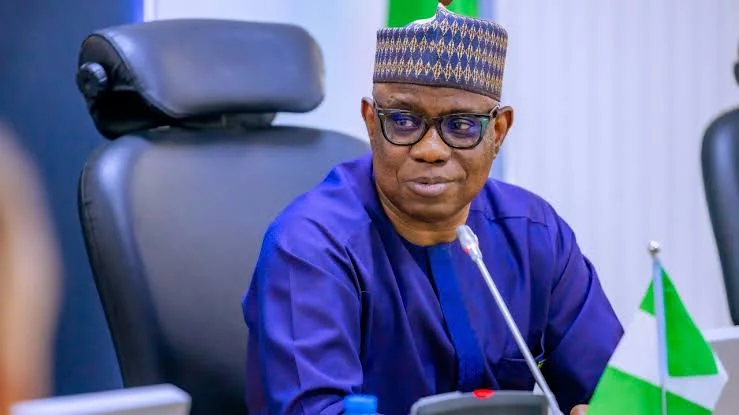
Stakeholders in the oil and gas sector have expressed concerns over anti-competitive practices in the downstream sector of the country’s petroleum industry, citing the weakness of the Nigerian Midstream and Downstream Petroleum Regulatory Authority (NMDPRA) and the Federal Competition and Consumer Protection Commission (FCCPC) in enforcing legal provisions to protect the market.
In what appeared to be government-backed impunity, dominant players in the sector, especially the Nigerian National Petroleum Company Limited (NNPC) and the Dangote Refinery, continue to exert influence on pricing and dictate market realities at the expense of smaller operators, a development that violates the provisions of the Petroleum Industry Act and the FCCPC Act.
At a media roundtable in Abuja organised by Extractive360, an oil and gas governance expert, Henry Adigun, stressed that competition in any market is fundamental to protecting consumers and guaranteeing long-term national interest.
Where fair competition is not assured, dominant players often seize control, leaving little or no room for others, a scenario that can distort markets and weaken the country’s prospects.
Nigeria’s downstream petroleum sector is not exempt from the risk, making it critical for regulators, particularly the NMDPRA and the FCCPC, to live up to their responsibilities. Both institutions are expected to ensure fair pricing, transparency, and that operators comply with the provisions of the PIA and the FCCPC Act .
The question industry players and analysts are asking, however, is how current regulation has affected competitiveness in the downstream sector. What is evident is a struggle for dominance, where some players are reaping disproportionate benefits at the expense of the public interest. This imbalance is not without consequences of potential job losses, investor uncertainty, reduced foreign inflows and even market manipulation remains a pressing risk. If left unchecked, the outcomes could undermine not only the downstream sector but the broader Nigerian economy.
The answer lies in strengthening and consistently applying the legal frameworks already in place. The FCCPC Act and the PIA provide a robust structure for promoting transparency, protecting consumers and preventing anti-competitive practices.
For example, Section 88 of the FCCPC Act empowers the President to establish price control measures for specific products, provided they include an expiration date.
Section 114 prohibits misleading representations about product prices or quality, while Sections 120 to 126 mandate the FCCPC to investigate anti-competitive practices across all sectors.
Similarly, Section 127 requires industry regulators to collaborate with the FCCPC, ensuring that technical expertise and competition oversight work hand-in-hand.
Yet, despite these clear mandates, the implementation gap remains wide.
The PIA itself reinforces this. Section 8(1)(d) requires NMDPRA to ensure fair pricing and competition in midstream and downstream operations. Section 33 mandates that retailing, bulk storage, and transportation licences must follow fair practice guidelines to guarantee openness. Section 48(f) promotes open access to pipelines and petroleum facilities, discouraging discrimination, while sections 173 to 175 abolish the Petroleum Equalisation Fund and uniform pricing, moving toward a free-market regime.
Section 205 states that petroleum pricing must be determined by unrestricted market forces, with Section 205(2) explicitly prohibiting price fixing or artificial scarcity except in emergencies under Section 206. Section 208 requires market participants to publish prices clearly and consistently. Together, the provisions establish a market-oriented, transparent structure. The challenge lies not in the absence of laws, but in weak enforcement.
A major example that highlights these gaps emerged earlier this year when Dangote Petroleum Refinery announced it would refund customers about N16 billion for premium motor spirit (PMS) purchased above advertised prices from distribution partners such as Ardova Plc, Heyden and MRS.
While the refund demonstrated responsiveness to consumer concerns, it also revealed the confusion and instability created by frequent price changes. Instead of clarity, Nigerians were confronted with opacity and regulators failed to step in decisively to protect the public interest.
When the company unveiled its distribution plan to supply fuel directly to filling stations and businesses nationwide, members of the Petroleum Products Retail Outlets Owners Association of Nigeria voiced concerns that such an arrangement could sideline independent marketers.
Despite these concerns, regulators such as the NMDPRA and FCCPC did little to intervene, showing weakness in implementing the PIA and the FCCPC Act.
For these players, a proactive response to concerns in the industry can douse tension and encourage investors, showing that the regulators are on top of their games. But they would rather choose the path of silence.
For a sector as sensitive as petroleum, where pricing, distribution, and availability affect every Nigerian household, such regulatory inertia is dangerous. “In any market, if fair competition is not guaranteed, there is a danger that dominant players may take over, leaving little room for others and ultimately harming the future of the country. In the downstream sector, it is therefore critical that regulators, especially the Petroleum Industry regulator and the Federal Competition and Consumer Protection Council (FCCPC), do their jobs properly. Their role is to ensure fair pricing, transparency, and that market operations follow due process,” Adigun said.
To avoid this, Adigun insisted that laws and regulations must serve as the guiding framework.
“If properly enforced, they will encourage more players to enter the market, attract fresh investment, and support local production.
“However, regulators still have much more to do. The FCCPC, in particular, must take a more active role. As the agency responsible for competition, it should be at the forefront of ensuring fairness and preventing anti-competitive practices,” he said. An industry lawyer, Olasubomi Chuku, also emphasised the vital role of the media in protecting competition.
According to her, the media’s first responsibility is to educate the public on regulatory frameworks and policies designed to foster competition.
The second is to provide objective, well-researched reporting and analysis that keeps both regulators and market players accountable. The third is to evaluate industry practices against existing laws, exposing anti-competitive behaviour while highlighting positive examples of fair play.
Without a vibrant media actively monitoring developments, Chukwu said, loopholes are more easily exploited, and consumers are left vulnerable. In the downstream sector, consumer education is very low; unless the regulators consistently educate the public, activities in the sector would remain unclear, fuelling consumer vulnerability.
Currently, many Nigerians believe they are benefiting from deregulation and market reforms, but this perception does not reflect reality. Uncertainty continues to expose workers and businesses to risks. Consider the example of tanker drivers whose livelihoods could be wiped out if competition collapses.
The lack of predictability also prevents small businesses and households from making long-term plans. By contrast, in South Africa, fuel prices are reviewed monthly or quarterly, giving consumers and businesses a predictable framework for planning. This practice provides stability and attracts investment, offering a lesson Nigeria can adopt.
Just recently, the Natural Oil and Gas Suppliers Association of Nigeria urged the Federal Government to enforce the PIA to ensure a fair and competitive downstream environment. Yet, the reality is that the sector remains fairly closed. Licensing processes lack transparency, are often inaccessible even through Freedom of Information requests, and approvals for independent players are frequently delayed or rejected.
The imbalance sustains conditions for near-monopolistic control, collusion among dominant players, and weak price competition. The risks extend beyond pricing. Artificial scarcity has often been used ahead of regulatory changes to manipulate markets. Infrastructure bottlenecks have created opportunities for hoarding. Regulatory inertia has allowed concessions and tax incentives for dominant participants, undermining non-discrimination and weakening smaller players.
Without a firm intervention, these practices will deepen, consolidating power in the hands of a few and shrinking opportunities for others. Supporting fair play in the downstream petroleum sector is therefore not optional; it is essential.
Consumers must be protected from exploitation, investors must be assured of a level playing field, and the market must operate transparently to attract and retain capital.
The FCCPC and NMDPRA must rise above political pressures and industry lobbying to enforce the rules already in place. This requires proactive monitoring, decisive sanctions for infractions, and collaboration between agencies to close loopholes.
Fair competition also demands that consumers themselves play an active role. They must insist on accountability, demand clarity on pricing, and challenge irregularities. A competitive downstream sector is not only about companies and regulators but about the rights of millions of Nigerians who rely on petroleum products daily. For them, competition means fairer prices, better service, and greater economic stability.
Executive Director of Extracrive360, Juliet Ukanwosu, said the downstream industry remains a vital pillar of Nigeria’s oil and gas sector, directly shaping the availability, pricing and distribution of petroleum products.
She noted that recent subsidy removal has triggered intense competition, often described as a price war, which has led to fluctuating pump prices and uncertainty for businesses and consumers alike.
According to her, the sector continues to face hurdles including high operating costs, erratic foreign exchange rates, reliance on imported refined products and infrastructural bottlenecks. However, she stressed that liberalisation has also created opportunities for greater private sector participation, fresh investment in storage and distribution, and discussions around expanding refining capacity
“The sector is in a state of adjustment, seeking stability and competitiveness amid shifting regulations and evolving public expectations,” Ukanwosu said.
She urged the media to play a key role in educating the public through balanced reporting, as the session explored competitiveness, regulation and investment in the downstream sector.




